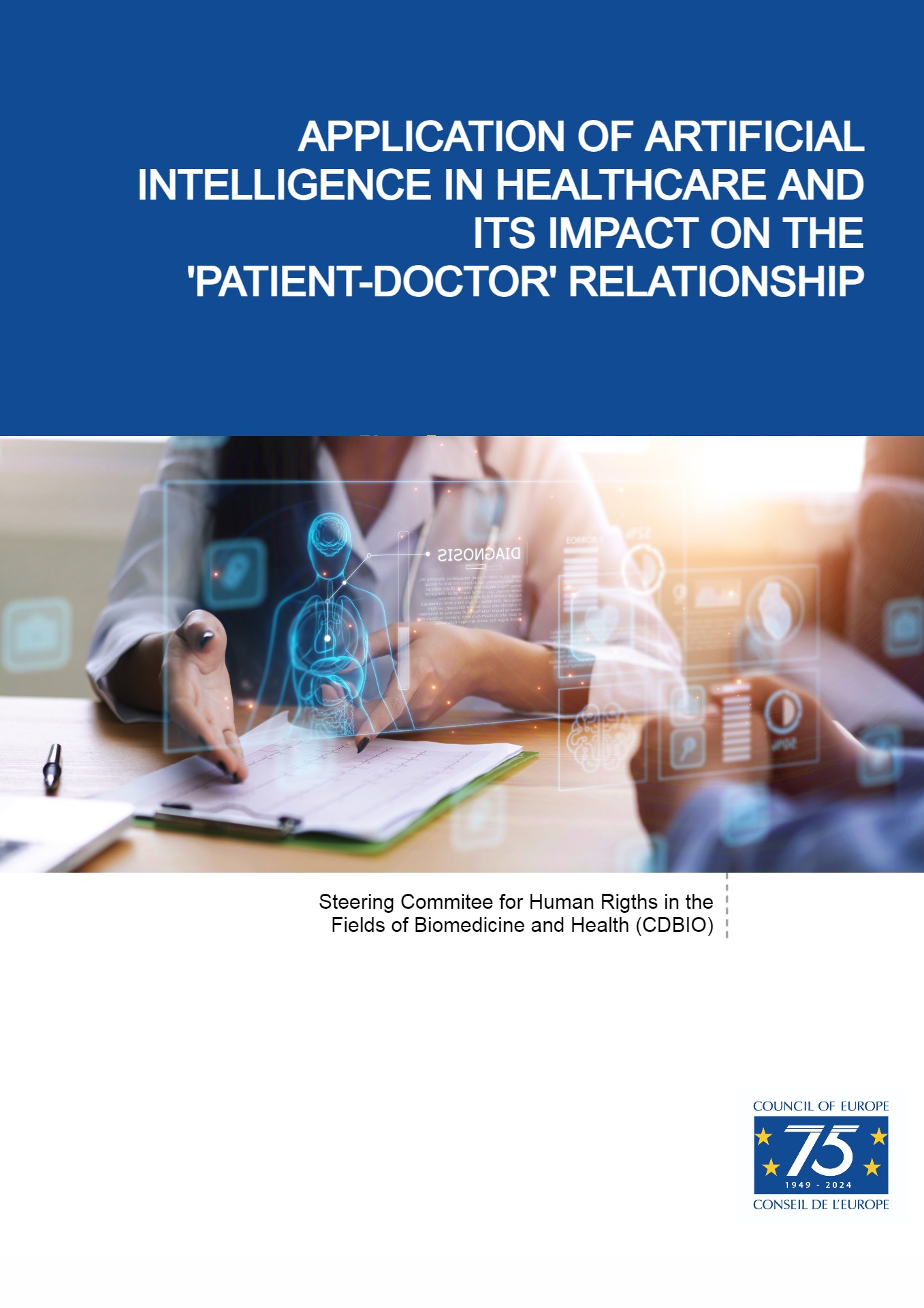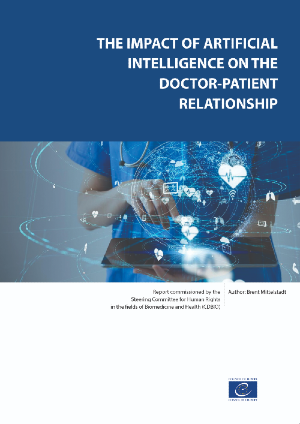Artificial Intelligence

On 13 June, 2024, the Council of Europe’s Steering Committee for Human Rights in the fields of Biomedicine and Health (CDBIO) issued a new report on the Application of AI in healthcare and its impact on the ′patient-doctor′ relationship, prepared by the CDBIO Drafting group on AI healthcare. This report focuses on:
application of AI in healthcare
impact of AI on the doctor-patient relationship, including how health data is collected and processed by AI systems and
how AI impacts on access to healthcare
role of healthcare professionals in respecting the autonomy of the patient
right to information as a patient
maintaining transparency and patient trust as critical components of the therapeutic relationship.
The report was prepared in the framework of the Council of Europe Strategic Action Plan on Human Rights and Technologies in Biomedicine (2020-2025), regarding the governance of technologies and the strategic objective of “Embedding human rights in the development of technologies which have an application in the field of biomedicine”.

On 7 June, 2022, the Council of Europe’s Steering Committee for Human Rights in the fields of Biomedicine and Health (CDBIO) issued a new report on the impact of artificial intelligence on the doctor-patient relationship, prepared by Brent Mittelstadt, Senior Research Fellow and Director of Research at the Oxford Internet Institute, University of Oxford.
The report examines AI systems regarding the doctor-patient relationship in relation to the human rights principles referred to in the European Convention on Human Rights and Biomedicine of 1997, otherwise known as the “Oviedo Convention”. More specifically, the report investigates the potential human rights impact of AI according to six themes: (1) Inequality in access to high quality healthcare; (2) Transparency to health professionals and patients; (3) Risk of social bias in AI systems; (4) Dilution of the patient’s account of well-being; (5) Risk of automation bias, de-skilling, and displaced liability; and (6) Impact on the right to privacy.
The report was prepared in the framework of the Council of Europe Strategic Action Plan on Human Rights and Technologies in Biomedicine (2020-2025), regarding the governance of technologies and the strategic objective of “Embedding human rights in the development of technologies which have an application in the field of biomedicine”.
The report contributes to the work of a new CDBIO drafting group on AI in healthcare, responsible for preparing further reflections and recommendations to be considered by the CDBIO in 2023-24.
Strategic Action Plan on Human Rights and Technologies in Biomedicine (2020-2025)
Strategic objective
Technological innovation often creates its own dynamic. Major technological breakthroughs in fields such as artificial intelligence, genome editing, and neurotechnology have the potential to advance biomedicine and healthcare. However, uncertainty exists about the impact and direction of these developments. For example, artificial intelligence is increasingly proficient in diagnostics but depends on massive amounts of patient data which may impact on transparency and patient trust, thereby necessitating the provision of guidance for healthcare professionals. Genome editing techniques which introduce inheritable changes in the human genome raise serious concerns about the possibilities of irreversible harm to future persons. Developments in neurotechnologies, such as deep brain stimulation, brain-computer interfaces, and artificial neural networks, raise the prospect of increased understanding, monitoring, but also of control of the human brain, raising issues of privacy, personhood, and discrimination.
The role of governance in biomedicine is often restricted to facilitating the applications of technology and to containing the risks that come to light. In this way, human rights considerations will only come into play at the end of the process, when the technological applications are already established, and the technological pathways often have become irreversible. To overcome this problem, there is a pressing need to embed human rights in technologies which have an application in the field of biomedicine. This implies that technological developments are from the outset oriented towards protecting human rights. For that reason, governance arrangements need to be considered, which seek to steer the innovation process in a way which connects innovation and technologies with social goals and values.
- Report on the impact of artificial intelligence on the doctor-patient relationship | Brent Mittelstadt, June 2022


